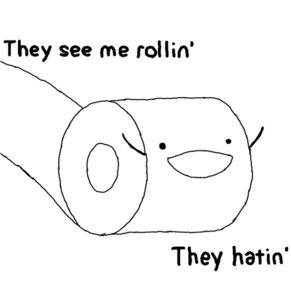12610435
Disproportionation and Water Treatment
Description
No tags specified
Resource summary
| Question | Answer |
| What is disproportionation? | When a single element is simultaneously oxidised and reduced |
| The halogens are under disproportionation when they react with... | Cold dilute alkali solutions (e.g. NaOH or KOH) |
| Give the general symbol equation for the reaction between a halogen and dilute sodium hydroxide | X₂ + 2NaOH --> NaXO + NaX + H₂O |
| Give the general ionic equation for the reaction between a halogen and dilute sodium hydroxide | X₂ + 2OH⁻ --> XO⁻ + X⁻ + H₂O |
| TRUE OR FALSE: All of the halogens can exist in oxidation states other than 0 and -1 | FALSE All of the halogens EXCEPT FLUORINE can exist in oxidation states other than 0 or -1 |
| Give the name and oxidation number of chlorine in ClO⁻ | Chlorate (I) Oxidation number of +1 |
| What is the common use of sodium chlorate (I) solution? | Household bleach |
| How is bleach made? Give the balanced symbol equation for the reaction | By mixing chlorine gas with cold dilute aqueous sodium hydroxide 2NaOH + Cl₂ --> NaClO + NaCl + H₂O |
| In the reaction between sodium hydroxide and chlorine gas to form bleach, which element undergoes disproportionation? | Chlorine is oxidised and reduced |
| When you mix chlorine with water, it undergoes disproportionation. The products are hydrochloric acid and chloric (I) acid (also known as hypochlorous acid). Give the balanced symbol equation for this reaction | Cl₂ + H₂O ⇌ HCl + HClO |
| Chloric (I) acid is formed when chlorine is mixed with water. Aqueous chloric (I) acid ionises to make chlorate (I) ions (also called hypochlorite ions). Give the balanced symbol equation for the ionisation of chloric (I) acid | HClO + H₂O ⇌ ClO⁻ + H₃o⁺ |
| What is the use of chlorine (or a compound containing chlorate (I) ions)? | Chlorate (I) ions kill bacteria. So adding chlorine (or a compound containing chlorate (I) ions) to water can make it safe to drink or swim in. Chlorine kills disease-causing microorganisms. It also prevents the growth of algae, eliminating bad tastes and smells, and removes discolouration caused by organic compounds. |
| What are the risks of using chlorine to treat water? | Chlorine gas is toxic - it irritates the respiratory system Liquid chlorine on the skin or eyes causes severe chemical burns Water contains a variety of organic compounds (e.g. from the decomposition of plants); chlorine reacts with these compounds to form chlorinated hydrocarbons and many of these are carcinogenic. HOWEVER! This increased cancer risk is small compared to the risks from untreated water (e.g. cholera epidemic) |
| Why might people object to having their water chlorinated in terms of ethical considerations? | People don't get a choice about having their water chlorinated and some people object to this as forced 'mass medication' |
| What are the two alternatives to chlorine in water treatment? | Ozone (O₃) Ultraviolet light (UV) |
| How might ozone be used for water treatment? | Ozone is a strong oxidising agent, which makes it great at killing microorganisms |
| What are the disadvantages of using ozone for water treatment? | It's expensive to produce Short half-life means that treatment isn't permanent |
| How might UV be used for water treatment? | UV kills microorganisms by damaging their DNA |
| What are the disadvantages of using UV for water treatment? | It is ineffective in cloudy water Short half-life in water means that treatment isn't permanent |
Want to create your own Flashcards for free with GoConqr? Learn more.

